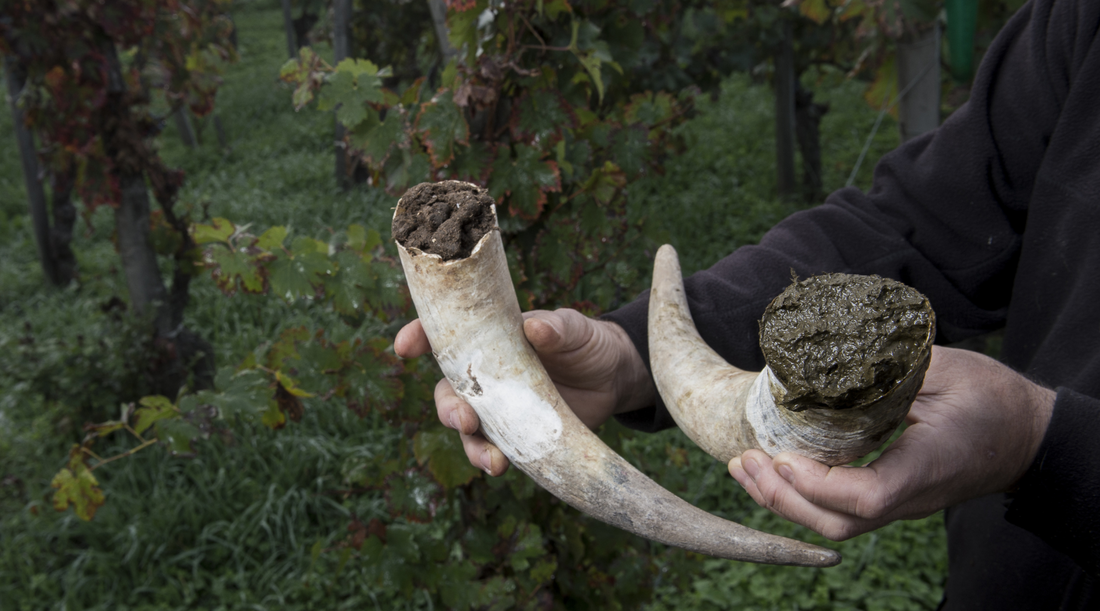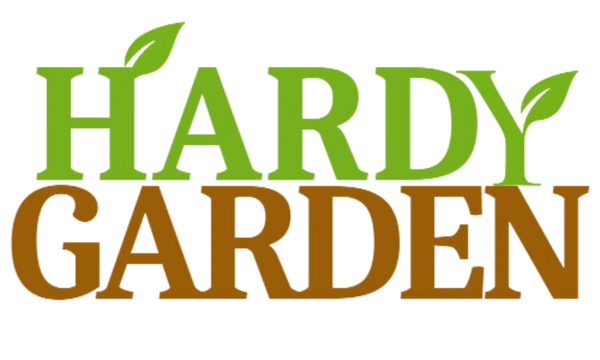
How Biodynamic Gardening Benefits You and the Earth
While we often seek modern solutions to our everyday challenges, there's wisdom in revisiting age-old practices rooted in our deep connection with the Earth. Biodynamic gardening, a holistic and spiritually infused approach to cultivation, that goes beyond traditional organic farming practices. It offers us a unique and profound way to nurture both ourselves and the planet we call home.
In this article, we will explore its principles, methods, and the numerous ways in which it benefits both individuals and the environment. We'll uncover the cosmic and earthly forces at play, delve into the unique preparations and applications that make this stand out, and discuss the real-life impact of this practice on your health and the health of our planet.
So, if you're curious about the secret behind nutrient-dense produce, the cosmic rhythms that influence plant growth, or the profound connection between your well-being and the well-being of the Earth, join us on this enlightening exploration. You'll discover how this age-old wisdom continues to offer new insights and lessons for a more sustainable and harmonious existence in the modern world.
What Is Biodynamic Gardening?
It is an eco-friendly and spiritually infused approach to gardening that goes beyond the scope of conventional organic garden. It was first developed in the early 20th century by Rudolf Steiner, an Austrian philosopher and esotericist, who emphasized the importance of the interrelationship between soil, plants and animals, and cosmic forces.
It is rooted in the belief that a farm is a living, interconnected organism, and every aspect of it should work in harmony. It combines ancient wisdom, modern science, and spiritual insights to create a holistic system that benefits both the environment and the individuals involved in it.
The Principles of Biodynamic Gardening
Working with Cosmic Rhythms
One of the fundamental principles is the acknowledgment of cosmic rhythms. According to biodynamic philosophy, the moon, planets, and stars influence growth of plants and vitality. Planting, cultivating, and harvesting are all carefully timed to align with these celestial rhythms. For instance, sowing seeds during a waxing moon is believed to promote better root development and stronger growth.
Composting and Soil Health
Biodynamic gardeners are serious about soil health. They consider the soil a living organism and use compost to nourish and revitalize it. Composting in biodynamic gardening takes on a unique twist - practitioners create biodynamic compost preparations, such as horn manure and horn silica, to enhance microbial activity and soil fertility.
Biodiversity and Planting Strategies
In biodynamic gardening, biodiversity is encouraged through polyculture and companion planting. Different plant species are grown together to create balanced ecosystems, reducing the need for many chemical fertilizers and pesticides. This not only enhances the health of the soil but also supports the preservation of indigenous plants and wildlife.
The Biodynamic Calendar: A Cosmic Guide
Lunar and Planetary Influences
The biodynamic calendar is a crucial tool in the biodynamic gardener's toolkit. It takes into account the phases and positions of the moon and planets. Specific days are designated for sowing, cultivating, and harvesting to optimize plant growth and vitality. For example, root crops may be planted during a descending moon to encourage strong root development.
Sowing, Cultivating, and Harvesting by the Moon
Biodynamic gardeners carefully plan their activities based on the moon's position. For instance, sowing seeds during a full moon is believed to enhance above-ground growth, while planting during a new moon focuses on root development. Cultivating and harvesting are similarly timed for optimal results.
Biodynamic Preparations for Soil and Plants
Horn Manure and Horn Silica
Horn manure, is one of the most well-known biodynamic preparations. It is made by placing cow manure inside a cow horn and burying it in the ground for several months. This biodynamic preparation enhances the soil's microbial life and stimulates root development in plants.
Horn silica, is created by filling cow's horn with crushed silica and burying it in the ground over the summer. This preparation, when sprayed on plants, is believed to enhance photosynthesis, increase plant vitality, and improve resistance to diseases.
Compost Preparations
Biodynamic compost preparations include yarrow blossoms, chamomile flowers, stinging nettle, oak bark, dandelion flowers, and valerian flowers. These are added to compost piles in minute amounts to improve the decomposition process and create nutrient-rich compost.
Homeopathic Dosing
Biodynamic gardening also incorporates homeopathic principles, with preparations like "500" (horn manure) and "501" (horn silica) applied to the land in extremely diluted forms. These act like homeopathic remedies for the soil, encouraging vitality and balance.
Biodiversity and Pest Control
Companion planting is a key aspect of the biodynamic approach to gardening. It involves planting different species of plants close together to create a balanced ecosystem that naturally deters pests. For example, planting marigolds alongside tomatoes can help protect the tomatoes from aphids.
Biodynamic gardeners aim to create ecosystems that promote biodiversity. By fostering a rich and varied environment, they not only support beneficial insects and animals but also reduce the need for chemical interventions.
Biodynamic gardening places a strong emphasis on natural pest control methods. Techniques like encouraging predator insects, using pheromone traps, and crop rotation all contribute to pest management without relying on harmful chemicals. Biodynamic sprays enhance soil and plant health.
Benefits Of Biodynamic Gardening
Nutrient-Dense Food: One of the most direct benefits is the production of nutrient-dense, high-quality food. The emphasis on the health of the soil and biodiversity results in produce that is often richer in vitamins, minerals, and flavor.
Connection with Nature: Engaging in biodynamic gardening can deepen your connection with the natural world. The practice encourages a profound understanding of the interconnections between the soil, plants, and cosmic rhythms, fostering a sense of awe and respect for the Earth.
Personal Growth and Well-being: It is not just about the environment; it also offers personal growth and well-being. The mindfulness and patience required in this practice can reduce stress, improve mental health, and enhance a sense of purpose and fulfillment.
Soil Regeneration: It goes beyond sustainability and actively regenerates the soil. The emphasis on composting and cover cropping enhances soil structure and fertility over time.
Reduced Carbon Footprint: By minimizing the use of synthetic chemicals and prioritizing local production, it reduces the carbon footprint associated with biodynamic agriculture. This benefits the environment by decreasing greenhouse gas emissions.
Preservation of Biodiversity: The practices support the preservation of biodiversity. By cultivating a wide variety of plants and promoting balanced ecosystems, biodynamic gardeners contribute to the protection of native species and beneficial insects.
Biodynamic Certification
Demeter Certification
Demeter International is the primary certifying body for biodynamic farming. Their certification ensures that products meet the highest standards of biodynamic agriculture. When you see the Demeter label on a product, you can trust that it has been produced according to rigorous biodynamic practices or principles.
As with any eco-friendly and sustainable practice, trustworthy labelling is vital. Ensure that products labelled as "biodynamic" or "Demeter-certified" genuinely adhere to biodynamic principles.
The Biodynamic Association
The Biodynamic Association, an international organization, plays a pivotal role in promoting and advancing biodynamic farming. They offer guidance, resources, and certification for farmers and gardeners who wish to embrace this holistic approach. Their mission is to ensure the practice of biodynamics is both ethical and sustainable.
Biodynamic Farming Worldwide
Biodynamic farming, is an ecologically conscious and holistic approach to agriculture. It emphasizes the interdependence of soil health, plant vitality, and cosmic rhythms.The principles remain constant, but biodynamic farmer often adapt them to their specific regions, climates, and ecosystems. This adaptability is one of the strengths of biodynamic agriculture. By using biodynamic preparations, composting, and lunar planting calendars, it seeks to promote sustainable farming practices that enhance soil fertility, biodiversity, and overall ecosystem health.
Biodynamic farms aim to create a closed, self-sustaining system, reducing reliance on external inputs and synthetic chemicals. This globally adopted approach not only produces high-quality, nutrient-dense food but also encourages a deep connection between biodynamic farmers and the land, fostering a sustainable and spiritually grounded agricultural ethos.
Conclusion
Biodynamic gardening is a unique and holistic approach to farming that offers a wealth of benefits for both individuals and the environment. By working with cosmic rhythms, emphasizing soil health, and promoting biodiversity, it creates nutrient-dense food while regenerating the Earth.
It offers nutrient-rich, flavorful produce, fostering a deeper connection with nature. But it's not just about you; it's about the Earth. It also regenerates the soil, reduces the carbon footprint, and preserves biodiversity. It actively supports our planet's well-being, contributing to the delicate balance of nature.
Whether you're a seasoned gardener or a beginner, consider embracing biodynamic gardening. It's a journey toward a better you and a healthier Earth. It's a profound and enduring connection to our beautiful, fragile world.
FAQs
Is biodynamic gardening the same as organic gardening? They have some similarities with organic gardening, such as avoiding synthetic chemicals and emphasizing soil health. However, it goes further by considering cosmic rhythms and using unique preparations.
How do biodynamic farming practices affect the environment positively? Biodynamic farming promotes biodiversity, reduces the carbon footprint, and regenerates the soil. These practices benefit the environment by fostering healthy ecosystems and reducing the impact of agriculture on climate change.
Are biodynamic foods more nutritious than conventionally grown foods? Biodynamic foods are often more nutrient-dense due to the emphasis on soil health and biodiversity. This can lead to higher levels of vitamins and minerals in the produce.
Can anyone practice biodynamic gardening, or is it only for experts? Anyone with an interest in sustainable agriculture can practice it. Starting small and seeking guidance from experienced practitioners is a good approach.
What are the common misconceptions about biodynamic farming? One common misconception is that biodynamic farming is solely based on esoteric practices. In reality, it combines ancient wisdom with modern ecological principles. Another misconception is that it's inaccessible to the average gardener, which is not necessarily the case, as you can adapt its principles to your scale and resources.
